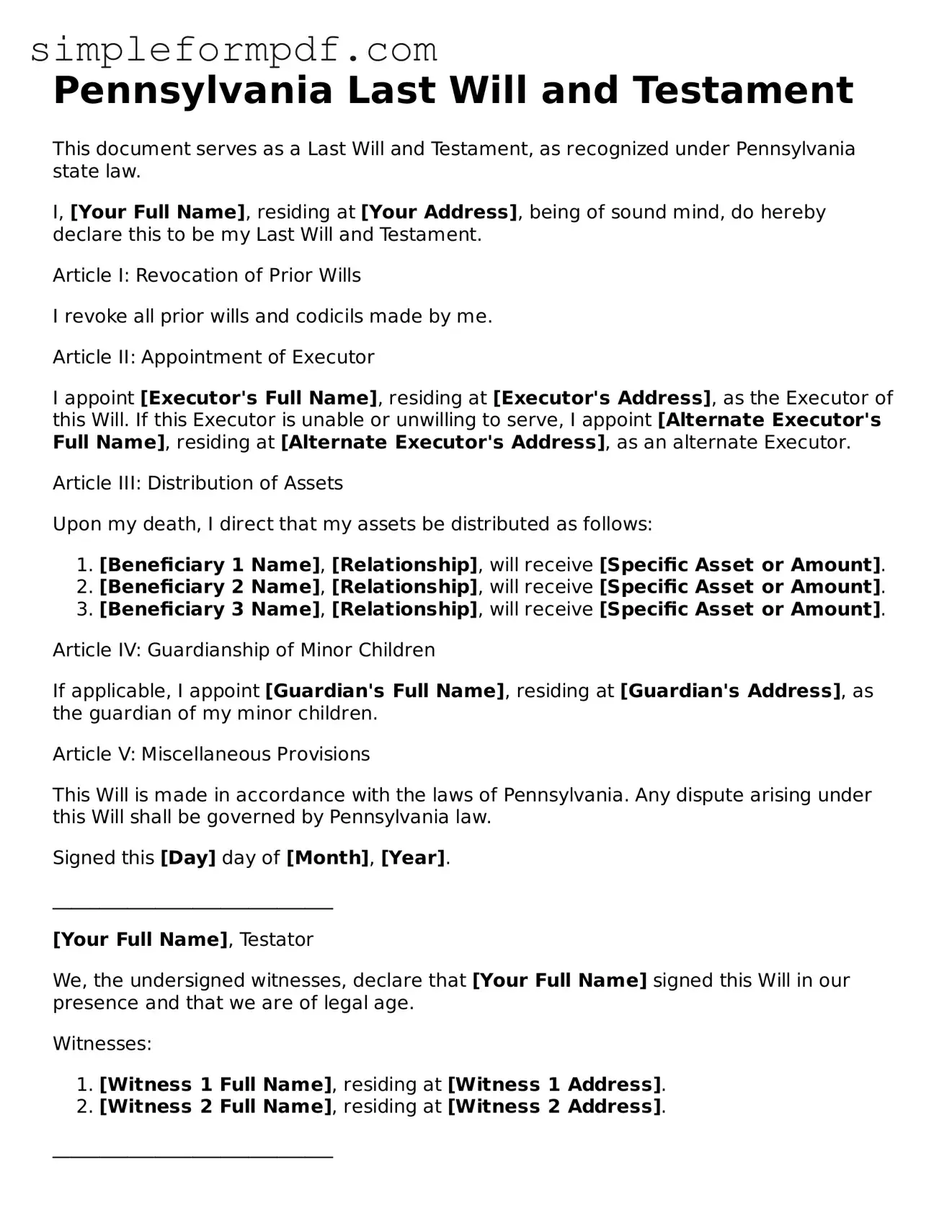Free Last Will and Testament Form for the State of Pennsylvania
A Last Will and Testament is a legal document that outlines how a person's assets and responsibilities will be handled after their death. In Pennsylvania, this form allows individuals to specify their wishes regarding the distribution of property, guardianship of minors, and other important matters. Understanding this form is crucial for ensuring that your desires are honored, so take the first step by filling it out using the button below.
Launch Editor

Free Last Will and Testament Form for the State of Pennsylvania
Launch Editor
Need instant form completion?
Finish Last Will and Testament online in just a few minutes.
Launch Editor
or
Download PDF
